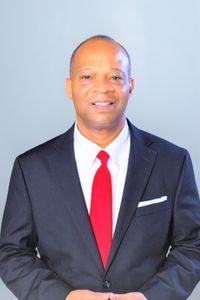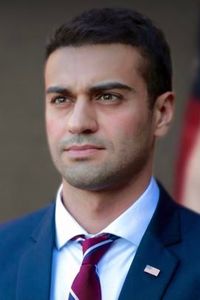Jeffrey Boone
In 2022, Jeffrey Boone ran for election to the U.S. House of Representatives in Florida’s 10th Congressional District. He sought the Democratic nomination in the primary on August 23rd but lost decisively, garnering just 2% of the vote. This article will provide an in-depth look at Boone’s background, his campaign themes and messaging, the challenges he faced, and the reasons for his defeat. Examining unsuccessful campaigns like Boone’s can provide valuable insights into the difficulties of running for office as a first-time candidate.
Background on Jeffrey Boone
Early Life and Education
Jeffrey Boone was born in Severn, North Carolina. He earned a bachelor’s degree from Colgate University in 1985 and later received a graduate degree from the NYU Leonard N. Stern Graduate School of Business in 1995.
After completing his education, Boone went on to have a career in finance, treasury, and community work. He brought this diverse set of professional experiences with him when he launched his congressional bid.
Professional Background
As mentioned, Boone has an extensive background in business and finance. He worked in treasury and served as a community coach prior to running for office.
This professional experience seemed to inform his political approach and campaign priorities. As we’ll explore later, he emphasized his business acumen and desire to support community growth during the race.
Congressional District 10 Race
In 2022, Florida’s 10th Congressional District was an open seat without an incumbent. The redistricting process following the 2020 Census had reshaped the district’s boundaries within the central Florida area.
Boone was one of many Democrats who jumped into the primary race early, attracted by the opportunity to run for an open seat. However, he would face an uphill battle trying to stand out in the crowded field.
Democratic Primary
The Democratic primary for Florida’s 10th Congressional District attracted a large slate of candidates, totaling 10 by the time of the August election. This included some big names like former Rep. Corrine Brown and Rep. Alan Grayson.
Opponent Overview
The field provided stiff competition for a first-time candidate like Boone. In particular, some of his key opponents included:
- Maxwell Alejandro Frost – A young progressive activist who ended up winning the primary and general election. Frost had a strong grassroots campaign.
- Randolph Bracy III – A state senator who had much greater name recognition and political experience than Boone.
- Alan Grayson – A national figure as a former congressman who had a built-in donor network.
- Corrine Brown – A former House member who previously represented part of the same district.
Running against these types of candidates made it difficult for Boone’s campaign to gain awareness and traction.
Boone’s Performance
When the primary votes were counted on August 23rd, Boone finished in 7th place out of the 10 candidates. He received just 2.1% of the total vote.
The winner Maxwell Frost won with a commanding 34.8%, while established candidates like Bracy and Grayson also finished well ahead of Boone.
This vote breakdown demonstrated that Boone struggled to convey his message and win over primary voters. His campaign failed to resonant compared to opponents who were better funded, connected, and recognized.
Issues and Platform
As a first-time candidate, Boone did not have an extensive record of policy positions coming into the race. His campaign messaging was focused on his personal and professional background rather than specific policy proposals.
Ballotpedia Survey
However, Boone did complete the Ballotpedia Candidate Connection survey, which provides some insight into his stances. The survey allows candidates to outline their views on key issues.
In his Ballotpedia responses, Boone did not actually answer any of the optional policy questions. The only information he provided was his name.
This reluctance to share substantive policy views was likely detrimental for voters looking for reasons to support Boone’s campaign. It masked his positions on important district issues.
Fundraising
In order to promote his relatively unknown profile, Boone needed to raise significant funds for advertising and outreach. However, fundraising was another clear challenge for his campaign.
Federal Election Commission records show that Boone raised only $5,707 over the entire election cycle. This paltry total was dwarfed by all of his major opponents who each raised hundreds of thousands or millions.
With such limited financial resources, Boone did not have the budget needed to execute a robust voter contact program or run TV/digital ads. This severely constrained his viability.
Campaign Themes and Messaging
While Boone did not put forward an extensive policy platform, he did try to communicate some broader themes and messages to voters. These sought to highlight his personal story and experience.
Website and Social Media
Boone’s campaign website and social media channels provided the main methods for him to convey his background, values, and vision to voters.
Key Issues
On his website, Boone outlined his support for policies related to education, jobs, healthcare access, and community development. These aligned with mainstream Democratic positions.
He emphasized his business experience and desire to provide economic opportunities in the district. His campaign messaging portrayed him as a political outsider focused on local community growth.
Advertisements and Events
Beyond his online presence, the reach of Boone’s messaging was likely limited by his lack of advertising and small campaign events. His social media showed him participating in some local Democratic forums and meet-and-greets.
But without extensive personal appearances or commercials, it was difficult for Boone to broadly increase his name identification in such a large district.
Endorsements
Endorsements from prominent officials, organizations, and community leaders can raise a candidate’s visibility. However, Boone did not attract many notable endorsements during his campaign.
This reflected his difficulty as an unknown first-time candidate in making connections with political influencers who could have amplified his outreach.
Outside Views on the Campaign
To better understand the strengths and weaknesses of Boone’s campaign, it is also helpful to examine how it was covered and viewed by external observers.
Media Coverage
Press coverage of Boone’s campaign was very limited throughout the race. Local and national outlets focused their attention on front-runners like Frost and Grayson.
When Boone was mentioned in news articles, it tended to just be listing him as one of many primary candidates. He did not earn substantive coverage conveying him or his message to voters.
Opinion Pieces
A few progressive activists wrote op-eds critical of Boone’s candidacy after he entered the race. They questioned his qualifications and progressive credentials.
For example, an Orlando Sentinel columnist described Boone as an “enigma” without detailed policy positions. Others panned his light campaign activity and lack of resources.
This negative commentary from engaged observers signaled weaknesses in how Boone presented himself and his left-leaning platform.
Reasons for Loss
Based on the overview so far, Jeffrey Boone faced numerous obstacles that ultimately led him to a last-place finish in the primary. Why exactly did his campaign fall short?
Challenges Faced
Several key challenges undermined Boone’s bid from the start:
- Running as a first-time candidate against much more experienced opponents with greater name recognition
- Facing formidable competition in a crowded primary field with big names like Grayson and Brown
- Providing vague policy positions and failing to complete critical candidate surveys
- Demonstrating limited fundraising strength, raising only about $5,700 total
- Lacking resources for extensive advertising and outreach efforts
These factors made it extremely difficult for Boone to introduce himself, convey his message, and win voter support.
Areas for Improvement
There are certainly lessons that can be learned from Boone’s defeat:
- First-time candidates need to detail clear policy priorities early to convey their credentials
- Building strong fundraising and voter outreach operations right away is essential
- Seeking high-profile endorsements provides valuable visibility and credibility
- Campaign messaging must be focused and consistent across platforms to break through
Strong performances in these areas could have potentially helped boost Boone’s standing, despite the challenging dynamics of the race.
Conclusion
In summary, Jeffrey Boone entered the 2022 Democratic primary for Florida’s 10th Congressional District as a first-time political candidate facing steep odds. He struggled to raise funds, garner endorsements, or establish policy positions to interest voters. Boone’s campaign messaging attempted to play up his outsider status but was not far-reaching enough to make an impression. Ultimately, his lack of name recognition and resources in the crowded field led to a resounding defeat. While unsuccessful, Boone’s campaign illustrates some of the typical hurdles faced by novice candidates that can be learned from and improved upon in future races.
FAQs
What was Jeffrey Boone’s background before running for Congress?
Boone was born in North Carolina and worked in finance, treasury, and community coaching. He had degrees from Colgate University and NYU but no prior political experience.
What congressional district did Boone run in during 2022?
Boone sought the Democratic nomination in Florida’s 10th Congressional District, which was an open seat after redistricting.
How much of the primary vote did Boone receive?
Boone finished in 7th place out of 10 candidates, receiving just 2.1% of the total vote.
What were some of the main challenges Boone faced in the race?
As a political newcomer, he struggled with low name recognition and fundraising compared to much more experienced opponents. He also did not effectively convey detailed policy positions.
What could Boone have done differently to improve his campaign?
Experts suggest he needed stronger messaging, bigger endorsements, more advertising, and clearer positions on key district issues to boost his viability.






